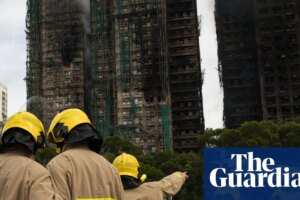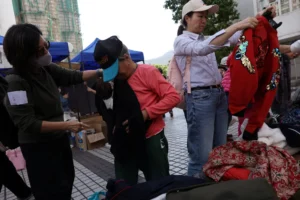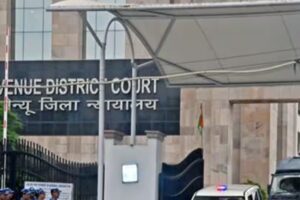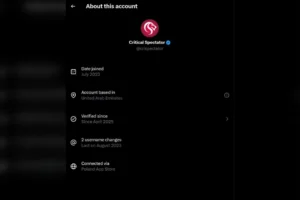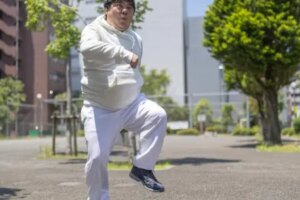
June 30 marked the fifth anniversary of Beijing’s imposition of a heavy-handed national security law (NSL) on Hong Kong, which has altered the sociopolitical landscape of the city by undermining its democratic institutions, weakening civil society, and severely curtailing a wide range of freedoms. In the last five years, groups of opposition politicians have been jailed, labor unions and universities cowed, once prominent media outlets shuttered, public protests quashed, and June 4 commemorations banned. Many Hong Kong activists and organizations have been forced into exile, and some have experienced transnational repression even in their new locales.
In May, the Hong Kong government fast-tracked new legislation to further solidify Beijing’s influence and impose harsher punishments for national security offences, including jail time for merely sharing information about investigations. This marked an expansion of Hong Kong’s homegrown “Article 23” national security law (Safeguarding National Security Ordinance, enacted in March 2024) that targets treason, insurrection, sabotage, external interference, sedition, theft of state secrets, and espionage—adding even more repressive ammunition to the antecedent 2020 National Security Law imposed by Beijing. Hong Kong’s government is now attempting to prolong the imprisonment of some previously prosecuted democracy activists, such as Joshua Wong (slated to be released in early 2027), by adding even more serious charges such as “conspiring to collude with foreign forces.”
A month earlier, Hong Kong’s Democratic Party announced that it would disband under pressure from local authorities, and Amnesty International, which closed its Hong Kong office in 2021, launched a new overseas office (officially registered in Switzerland) to “focus on advocating for human rights of Hongkongers, within Hong Kong and abroad, amplifying their voices and fostering a strong diaspora community globally.” Yet another seasoned opposition party, the League of Social Democrats (LSD), announced this week that it would disband after nearly two decades of democratic political activity. At Nikkei Asia, Kenji Kawase and Peggy Ye described how Hong Kong’s “zero tolerance” for political dissent doomed LSD, the city’s last genuinely vocal pro-democracy party:
“Today, with deep sorrow, we announce that, in the face of immense political pressure and after careful deliberation — particularly with regard to the consequences for our members and comrades — we have made the difficult decision to disband,” said Chan Po-ying, the group’s chairwoman, in a news conference on Sunday.
[…] Alric Lee, founder of Lady Liberty Hong Kong, a Tokyo-based nonprofit organization promoting democracy, human rights and freedom in the city, told Nikkei Asia that the Chinese and Hong Kong authorities are “trying to break our morale [and] tell Hong Kong people that there will be no more hope, no more room for any democratic voices.” He bemoaned how they are now adopting a “total ‘zero tolerance’ strategy” in the city.
“Once this group disbands, no formal pro-democracy presence will remain in Hong Kong’s political landscape,” said Huen Lam, communications director at the Hong Kong Democracy Council, a pro-democracy advocacy group based in Washington. The party is the latest casualty of the crackdown on dissent since the imposition of the national security law, and follows the Civic Party’s dissolution and the Democratic Party’s shutdown announcement. [Source]
Numerous media outlets have published assessments of how the National Security Law has reshaped Hong Kong over the course of five years. Foreign Policy featured a collection of five essays by various contributors on topics such as daily life in Hong Kong, Hong Kong’s warning signs for America, Hong Kong’s “show trials” of prominent dissenters, the limits of bureaucratic authoritarianism, and the importance of recognizing Hong Kong in terms of its own nuanced history, rather than a mere casualty of “great power” politics. Tiffany May at the New York Times interviewed three young former protesters from Hong Kong who spoke about their lives today, and the price they paid for their principled activism. An article from AFP about how democratic politicians, activists, and even their lawyers have been caught up in the National Security Law’s widening dragnet, included a quote from Eric Lai, a research fellow at the Georgetown Center for Asian Law, who noted that Hong Kong “was adapting approaches from mainland China such as ‘invitation to tea’ — a practice associated with state security agents. Such informal methods ‘to regulate and to stabilise society’ were favoured because they are ‘less visible,’ Lai said.” A recent piece in DW included interviews with Hong Kongers mourning the demise of the city’s annual July 1 mass public rally, in which hundreds of thousands of citizens would march and articulate their demands for freedom and democracy. “I stopped going in 2020, when marches were no longer allowed,” one pseudonymous Hong Kong man told DW. “Now it’s just red flags and celebration. […] Looking back, it almost feels romantic — that we once believed we could ask the government for change.”
For Hong Kong Free Press, James Lee published an explainer on how national security has come to permeate every corner of Hong Kong’s bureaucracy, including departments in charge of arts and culture, labor and social welfare, land development, financial auditing, and even routine oversight of local shops and businesses:
Most recently, the Food and Environmental Hygiene Department (FEHD) notified businesses of new national security clauses under the Public Health and Municipal Services Ordinance.
The new rule is the latest addition to similar provisions in official guidelines. Government departments and statutory bodies across different sectors, including education, labour, social welfare, arts and culture, and the environment, have added clauses relating to national security to their terms and conditions.
[…] In letters sent to businesses, the department said that it could revoke business licences if operators – including license holders, directors, management, employees, agents, and subcontractors – engage in “offending conduct” against national security or the public interest.
The move has raised suspicions as to whether it targets “yellow shops” – businesses sympathetic to Hong Kong’s democracy movement.
In addition, Secretary for Environment and Ecology Tse Chin-wan pledged earlier this month to tighten scrutiny of applicants and recipients of the government’s Environment and Conservation Fund (ECF), saying public resources must not fall into the hands of “non-patriots.” [Source]
Human rights groups have also issued studies and assessments detailing the profound toll of Hong Kong’s National Security Law, and calling on other governments to continue to exert pressure on Hong Kong’s government to respect the rights and freedoms of its citizens. A piece from Human Rights Watch described the many casualties of China’s program of “building a ‘patriots only’ Hong Kong”:
“In just five years, the Chinese government has extinguished Hong Kong’s political and civil vibrancy and replaced it with the uniformity of enforced patriotism,” said Maya Wang, associate China director at Human Rights Watch. “This heightened oppression may have dire long-term consequences for Hong Kong, even though many Hong Kongers have found subtle ways to resist tyrannical rule.”
Since adopting the National Security Law, the Chinese government has largely dismantled freedoms of expression, association and assembly, as well as free and fair elections, fair trial rights and judicial independence. The government has increasingly politicized education, created impunity for police abuses, and ended the city’s semi-democracy. Many of Hong Kong’s independent civil society groups, labor unions, political parties, and media outlets have been shuttered.
The Chinese government has been building a new and opaque national security legal regime and bureaucracy, weaponizing the courts to hand down severe punishment for dissent – up to life in prison – and harassing and surveilling Hong Kongers at home and abroad. The authorities are also rewriting Hong Kong’s history.
[…] Since 2020, 326 people have been arrested for national security offenses; and 187 people and 5 companies have been charged. National security trials have a nearly 100 percent conviction rate. [Source]
In the judicial realm, new research from Amnesty International suggested that 80% of the individuals who have been convicted under Hong Kong’s National Security Law should never have been charged in the first place:
Amnesty’s analysis of 255 people targeted under the draconian law in Hong Kong since 30 June 2020 also showed that bail was denied in almost 90% of cases where charges were brought, and that those denied bail were forced to spend an average of 11 months in detention before facing trial.
[…] The analysis found that of the 78 concluded cases under the National Security Law, at least 66 (84.6%) involved legitimate expression where there was no evidence of violent conduct or incitement and should not have been criminalised according to international standards.
When concluded cases under Article 23 and pre-Article 23 “sedition” offences are included, at least 108 out of a total of 127 cases (85%) involved similarly legitimate forms of expression which were unjustly prosecuted. These cases fall well short of the high threshold required for criminalisation under international standards.
[…] Sarah Brooks, Amnesty International’s China Director, said: “Five years after the enactment of the National Security Law, our alarming findings show that the fears we raised about this law in 2020 have been realised. The Hong Kong government must stop using the pretext of ‘national security’ to punish legitimate expression.”
[…] “This research demonstrates that the vast majority of those charged with national security offences have acted entirely within their rights. Other governments should step up and use their influence to urgently press the Hong Kong and Chinese authorities to repeal the law.” [Source]
In a recent article for the Committee for Freedom in Hong Kong (CFHK) Foundation, Thomas E. Kellogg, legal scholar and executive director of the Center for Asian Law, summarized some of the most concerning results of five years of Hong Kong’s NSL, and what they might bode for Hong Kong’s future. In addition to describing how the NSL has been used to decimate Hong Kong’s pan-democratic political parties, Kellogg noted the targeting of everyday citizens, the erosion of the judiciary, the expansion of Hong Kong’s national security state, and the rise in the use of extra-legal threats and harassment to suppress dissent:
The NSL was enacted to transform Hong Kong, and it has succeeded. Numbers can tell part of the story: since the law went into effect, 332 people have been arrested, and 165 have been convicted and imprisoned, according to the Hong Kong government. At least 90 civil society organizations have been shuttered between July 2020 and March 2024, along with more than 20 media outlets, according to a recent report I co-authored with two Hong Konger colleagues. A more recent analysis found that over 250 workers’ unions have been deregistered over the past five years. An estimated 500,000 Hong Kongers have left the city over the past five years, many of them fleeing the repressive political environment. They have taken up residence in the United Kingdom, Canada, Australia, Taiwan, and elsewhere.
[…] Hong Kong’s national security state now stretches well beyond the NSL itself. The new regime includes new institutions created by the NSL, such as the powerful and secretive Office for Safeguarding National Security (OSNS). Also, several new laws have further expanded the government’s national security powers and further undermined basic rights. In March 2024, for example, the Legislative Council enacted the Safeguarding National Security Ordinance, which added several new national security crimes to Hong Kong law, while also dramatically expanding the government’s already broad national security powers. More recently, in May 2025, the government used its quasi-legislative authority to enact supplemental regulations that expanded the role of the Mainland-run Office for Safeguarding National Security, a clear violation of Hong Kong’s once-vaunted autonomy. […] It’s unlikely that the government is done adding restrictive new laws to the books.
Beyond criminal prosecution, the government also uses extra-legal threats and harassment to keep its critics in line. Since July 2020, criminal prosecution under the NSL and the sedition provision of the SNSO have been the Hong Kong government’s primary tools for enforcing political red lines. But it also regularly relies on threats and intimidation to silence critics. In the spring of 2021, for example, the pro-Beijing Ta Kung Pao newspaper published an attack on the pro-democracy NGO Civil Human Rights Front (CHRF), calling it “the anti-China agent of chaos in Hong Kong.” This rhetorical strike, along with other moves, led to the closure of CHRF just months later. In other cases, the government has relied on threats of arrest and prosecution made to individuals behind closed doors, which similarly led several organizations to “voluntarily” shut down.
More recently, the government has used tax investigations and regulatory enforcement as its chief tool. The goal is not to force the closure of targeted groups, but rather to sap their resources and remind them that they could be shut down at any time. [Source]
